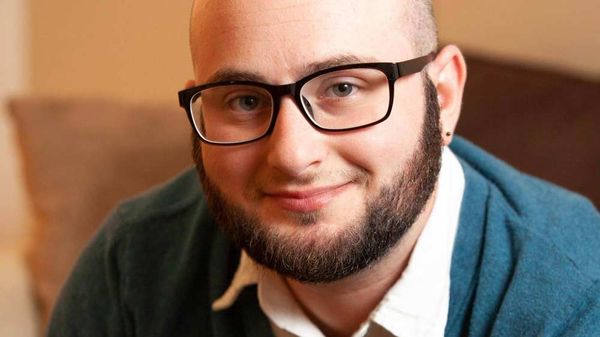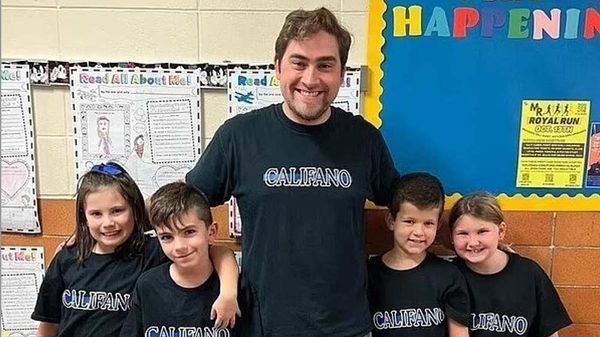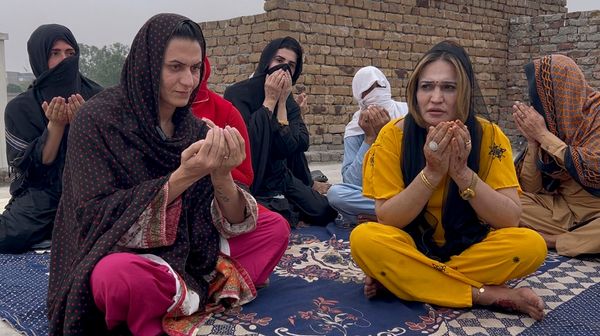May 4, 2008
(No) Money changes everything
Michael Wood READ TIME: 11 MIN.
To the average American the news about the U.S. economy looks bleak: the housing market is in shambles over the sub-prime mortgage crisis, gas prices across the country are reaching record highs (more than $3.50 per gallon in Massachusetts), and economists say that the economy is in a recession, despite protests to the contrary from Pres. Bush. But while LGBT folks share many of their neighbors' concerns about what impact the faltering economy will have on their job, the value of their home or the cost of putting food on the table, a recession could have a broader effect on the LGBT community. Bay Windows spoke with the heads of non-profits serving the LGBT community and people living with HIV/AIDS who worry that a shaky economy might cause funding for their organizations to dry up, forcing them to cut back programs that typically serve the most vulnerable members of the community or scale back their advocacy work. Despite the concerns about the economy, however, some executive directors and non-profit veterans say that with proper planning and strategic fundraising plans many organizations should be able to ride out the worst of the alleged recession.
Grace Sterling Stowell, executive director of the Boston Alliance of GLBT Youth (BAGLY), said that this year BAGLY has lost about $35,000 in annual funding from two foundations that had been longtime supporters of the organization, a significant cut to the approximately $500,000 yearly budget for BAGLY's Boston youth programming (BAGLY's total budget also includes about $215,000 in additional funds to coordinate other LGBT youth programs throughout the state, and it serves as the fiscal sponsor for the Massachusetts Transgender Political Coalition). Stowell said those cuts, as well as past cuts to the budget, have forced BAGLY to scale back some efforts, sending youth to fewer leadership conferences, charging more for dances, and running its LGBT speaker's bureau as best it can without dedicated funding. She declined to name the foundations, and she said she is unsure whether the economy had any impact on their decision to shift their funding to other priorities. But Stowell worries that the economy could impact other crucial sources of BAGLY's funding, including state contracts and individual giving. Stowell said LGBT youth programs are still recovering from the political beating they took under the administration of former Gov. Mitt Romney, who attempted to veto funding for those programs and attempted to abolish the now defunct Governor's Commission on Gay and Lesbian Youth.
"All of us here at BAGLY are very concerned about the recession and the tight economy in the coming year. ... To be in a situation now where there's more political support for our work but money is tighter than before, that's definitely going to be a challenge for the coming year," said Stowell.
She said with people worried about the state of the economy it may be difficult for smaller non-profits like BAGLY to continue to attract dollars from individual donors.
"That has meant that individual donors have had to pick and choose where they put their money, and it's hard for a small nonprofit like BAGLY to get a foothold there, to get donors to see GLBT youth as a priority," said Stowell.
State funding for LGBT and HIV/AIDS programming will also be at a premium this year. During the last fiscal crisis in 2001 and 2002 the state slashed funding in both areas. LGBT youth programs were cut from $1.6 million to the current level of $550,000, and both Gov. Deval Patrick and the House Ways and Means Committee have proposed level funding all LGBT youth programs and providing small increases to HIV/AIDS programs. The House is debating the budget this week and advocates are pushing for larger increases across all LGBT and HIV/AIDS programs. So far they have met with some success, winning funding increases for most program areas during the House budget debates (see "LGBT funding increased" p.1), but even those increases were far below what advocates hoped to receive.
Past experience has shown that when funding for small LGBT non-profits wanes, it has the greatest impact on some of the most vulnerable members of the LGBT community. Meiko Xavier, who last January joined the staff of the Cape and Islands Gay and Straight Youth Alliance (CIGSYA) as administrative assistant, had been an active youth member of the group for the two years prior, and he said the support he found at CIGSYA was crucial when he began coming out as transgender. When he first got involved as a youth member CIGSYA was in the midst of a fundraising slump that had begun around 2004 and lasted through 2006 as a result of decreases in the amount of funding they received from individual donors and grants, according to CIGSYA executive director Scott Fitzmaurice. During those years Fitzmaurice said the budget, which now stands at about $200,000 per year, plunged to around $140,000, and the organization had to cut back on staff and drastically scale back the hours of CIGSYA's drop-in center. CIGSYA is now open three days each week and sponsors occasional weekend events, but Xavier said as a youth the scaled back hours meant that one of his primary systems of support was unavailable.
"[The impact] was definitely visible for the members, myself included, because our open hours were Wednesdays and Fridays at the time, and we weren't open at all for a little bit because staffing wasn't able to be at the center. And I know that was difficult for a lot of people because CIGSYA provides an outlet for people to come and network and have a space to go and be accepted, and for that not to be available at all or on a limited basis, that's difficult, especially on Cape Cod, where there's not a lot for queer people," said Xavier. "It was a huge lifeline for me. At the time I first started going I was first coming out as trans and didn't have any other resources available or people I could talk to or even people my own age."
When he first joined he and Fitzmaurice and another youth launched a gender discussion group that he said was a particularly important source of support, but when CIGSYA scaled back its drop-in hours the program went on a temporary hiatus. CIGSYA also temporarily canceled its weekend dances, a rare social venue for LGBT youth on the Cape. Fitzmaurice said in the last several years CIGSYA has been working to expand its roster of individual donors and grant support, and he hopes the economy won't hinder those efforts.
Previous recessions have also meant fewer resources for people living with HIV/AIDS and those at risk for infection. Jonathan Scott, executive director of Victory Programs, a substance abuse treatment agency with a strong focus on people living with HIV/AIDS, has steered his organization through two prior economic downturns, once in the late 1980s and again in the aftermath of 9/11. Both of those downturns saw Victory Programs lose substantial sources of funding. Scott said the latter downturn in particular forced Victory Programs to shutter some key programs, including a Hepatitis C program, a wellness center program for people living with HIV/AIDS, and a substance abuse program for women at MCI Framingham prison. Ironically, as Victory Programs was forced to cut services demand for those same services increased, said Scott.
"I think the need for services is even greater during these times as more people are in economic stress and need our services," he explained. He said during past recessions Victory Programs tried to make cuts without harming its core programs.
"We looked at our weakest links. We realized some things would have to go, but we had to focus and hold firm to what was key and essential," said Scott. "On one level it does hurt, but if you hold onto what's key and essential you have something to start to build from."
Organizations providing direct services are not alone in worrying about the impact of the economy on their ability to carry out their mission. LGBT advocacy organizations also worry that if their funders tighten their belts it could force them to scale back their work. Gunner Scott, director of the Massachusetts Transgender Political Coalition (MTPC), said many of MTPC's individual donors could be vulnerable if the economy enters a recession.
"I do think the economy can [impact how much we receive from donors] because the folks who donate to MTPC, the majority come from the transgender and ally community. Many of them are living from paycheck to paycheck, so if there's a situation with their employment, that definitely affects their giving," said Scott.
He said he also worries that foundations may be less likely to support the work of smaller, grassroots-oriented organizations like MTPC when times are tough.
"When you talk about the economy what I have seen in the past is foundations and other progressive places that do grant-making have less money to give. An organization like ourselves that is very small, one is we may not get the requests that we ask, and second they may say, here's an organization that's been around a lot longer. ... Let give more to an organization that's been in the community longer and has all kinds of programs," said Scott.
MTPC is currently engaged in the largest advocacy effort of its six-year history, working to pass a statewide transgender non-discrimination and hate crimes bill, House Bill 1722. The organization received major grants from the Human Rights Campaign and the Boston Foundation, enabling them to hire Scott as MTPC's first paid staff. Before receiving those grants, as well as funding from coalition partners like MassEquality, Gay and Lesbian Advocates and Defenders (GLAD), and the Massachusetts Lesbian and Gay Bar Association (MLGBA), MTPC's budget stood at about only about $3000 per year. This year Scott said MTPC's budget leaped up dramatically to $70,000. Scott said having a dedicated staff member has been vital to waging an effective campaign to pass H.B. 1722, but if funding dries up he said the organization would be forced to return to operating as an all-volunteer effort.
"We'll have to lay me off. If we can't raise the funds to pay the staff position that will happen," said Scott.
As for the few national foundations that focus explicitly on LGBT organizations, the economy will likely have little impact on their efforts, said Cindy Rizzo, director of grant-making programs for the Arcus Foundation, which funds LGBT causes and great apes conservation efforts. She said Arcus hopes to match or expand on the $17 million in LGBT-related grants it made in 2007, and she does not believe the economy will hinder those efforts. Rizzo does not expect a recession to increase demand for their grants noticeably because demand for LGBT grants is already far greater than the supply.
"We don't have huge numbers of funders out there that are funding GLBT work, especially foundations. So I think our demand is always high," said Rizzo.
Battle plans
Many organizations are taking proactive steps to minimize the harm from a downturn in the economy. Scott Gortikov, development director for MassEquality, said that the organization, which relies overwhelmingly on individual donations, is working to shore up donor support.
"We've all heard the speculation in the papers that a recession is on the way, if not already here - and any fiscally responsible organization needs to keep broader economic trends in mind when developing a budget. We're absolutely concerned about a recession - because the fact is, 80 percent of our funding comes from individual donors who recognize the importance of the work we do and want to put their philanthropic dollars behind us. This is why we're reaching out to our former donors and activists right now," said Gortikov.
He said MassEquality sent out a direct financial appeal to more than 50,000 people a few weeks ago, and the organization has asked supporters to consider becoming "sustainers," setting up a payment program through their credit cards to donate a small amount of money each month that might be more manageable for people during tough economic times than one large donation. Gortikov said keeping the donations coming in during the economic downturn is crucial to maintaining MassEquality's LGBT advocacy programs.
"And, yes, to answer your question about cutting back on programs - if we don't meet our fundraising goals this year, then we will definitely have to cut back on programs - programs we know we need to get the job done. That's a situation we really hope to avoid, but we can only do it with the individual support of our members," said Gortikov.
Jonathan Scott said that Victory Programs has learned crucial lessons during the last two major economic downturns. While Victory Programs was forced to cut programs in each instance, Scott said Victory Programs also experienced new growth in those periods. During the recession of the late '80s Scott said that while their government contract funding was decimated, the plummeting real estate prices allowed them to triple their real estate portfolio, buying foreclosed and abandoned properties and converting them into residential treatment programs. In the downturn that began in 2001 Victory Programs again lost much of its government funding, but Scott said many of their individual donors increased their giving during those years, and the organization was able to merge with a struggling women's shelter and other programs in economic distress to prevent them from closing their doors.
Scott said while recessions can take their toll on a non-profit's budget and force them to cut back on individual programs, the key to surviving long-term is to have a diversity of funding sources, balancing state contracts with individual giving, private foundation support, and other sources. By relying on diverse funding sources he said organizations could ensure that a loss to any one source does not sink them.
"I always try and look for and be clear on what's my greatest exposure at any time, and always try to anticipate the weakest link. ... I tend to not focus on the fear of what's happening today in the economy but really focus again on where at any one time is my greatest exposure and what can I do to fix that so I won't be kept awake at night," said Scott.
Buzz Harris, a non-profit consultant who teaches classes on development and fundraising work, agreed that diversity of funding was crucial to a non-profit's survival during a harsh economic climate. He said during the last downturn he served on the board of SpeakOut, the LGBT speakers' bureau. When the state began slashing funding for LGBT youth programs he said it became clear that SpeakOut relied far too heavily on the state for support.
"Where SpeakOut ran into trouble, though, was about 60, 70 percent of their money was coming from the Commonwealth of Massachusetts, and then that money got cut. ... That's an example of the kind of trouble an organization can get into in an economic downturn, if they're small," said Harris. This year Harris began consulting with SpeakOut to help the organization rebuild its fundraising capacity and get out of debt.
Harris said another strategy crucial to riding out a harsh economic climate is to focus on increasing the number of big-ticket donors. He said most small grassroots organizations spend too many resources going after large groups of donors who will make small donations, rather than zeroing in on the small group of donors who could afford to make much larger donations. He said many smaller organizations might have donors on their lists who only give a couple hundred dollars but who might be willing to give several thousand dollars if the organization reaches out and forges a closer relationship with them.
"In really hard times organizations' overall numbers of donors will drop almost inevitably, but there's still quite often a reservoir of major donors in their donor base who they've never tapped. ... If they don't have a large number of major donors, they do have a resource they can tap, which is learning to do major donor work," said Harris.
Michael Wood is a contributor and Editorial Assistant for EDGE Publications.







